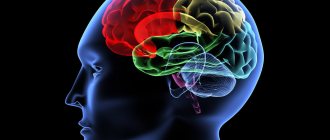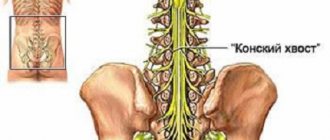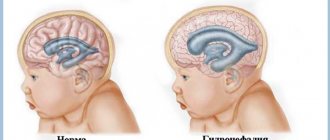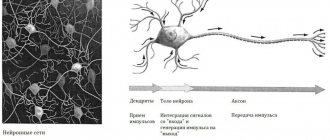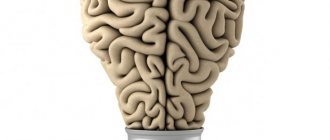Relevance of the problem
Dopamine plays an important role in the functioning of the brain. This chemical neurotransmitter also plays a fundamental role in the prefrontal cortex of the brain, which controls higher functions such as alertness, motivation, and decision making. Dopamine in the prefrontal cortex plays a role in virtually all aspects of high-order cognition, including attention and behavioral flexibility. It is also associated with motivational and cognitive deficits in brain diseases such as schizophrenia, drug addiction and attention-deficit/hyperactivity disorder.
Correction of disorders in the prefrontal cortex
Neuroacoustic programs have a strong effect in the treatment of attention deficit disorder. Don’t become a provocateur for others. I’ve already written about this, but I’ll repeat it for reinforcement. People with ADD unknowingly get into arguments to warm up their prefrontal cortex. This allows them to “connect” to this world, gain focus and release energy. If such a person is next to you, you should remember the main rule - do not enter into conflict, do not succumb to provocations. And parents whose children suffer from ADD should talk to them in a quiet, calm voice. This rule is also true for resolving any other conflicts, be it work, business, or personal relationships. I recommend applying the same principle when filing applications to protect your rights. Do not engage in unnecessary conversations with anyone. Submit your application, get a registration number, and if they start asking questions, refer to lack of time. In Russia, legally illiterate workers are afraid of every piece of paper and try in every possible way to laugh at a person trying to sort out his problems. The legal illiteracy of individuals causes indignation. And further. The louder they shout at you, the quieter you should speak. And if it’s hard for you to hold on, ask a loved one to remind you of this at such moments. When he's around, of course. If the situation gets out of control, refer to the need to go to the toilet, lack of time, an urgent call, etc. And if the interlocutor wants to have a conversation, let him know that you will only talk in a calm and respectful environment. Try drug therapy under the supervision of a specialist. If there are neuropsychologists and neuropsychotherapists in your city, then it is best to immediately contact these specialists. Psychotherapists have the right to prescribe medications. I categorically do not recommend prescribing medications for yourself, since their selection should be done taking into account the individual case, observing dosages, regimens and precautions. In general, it’s better not to get involved in medications without a specialist. From established medical practice in the United States, drug therapy is successfully used to treat attention deficit disorder. Patients are prescribed Ritalin (methylphenidate), Dexedrine (dextroamphetamine), Adderal (amphetamine salt mixture), Desoxyn (methamphetamine), Cylert (pemoline). These drugs are stimulants and increase dopamine production. And dopamine, being an important neurotransmitter, prevents the prefrontal cortex from “cooling down.” At first, when I read the names of these drugs, I thought about their narcotic effect and addiction syndrome. In fact, it turned out that they are widely used by Western doctors because of their good tolerability, safety and speed of action. In this case, the advantage of drugs is their ability to quickly change people's lives for the better. They become reasonable, do not get involved in arguments, stop focusing on the bad and notice more the good in people, life, and the world. Their relationship is improving. When I was prescribed Adaptol, a proven anti-anxiety drug that stimulates the production of serotonin in brain tissue and has no withdrawal symptoms, I became more sociable, sociable, and stopped being afraid. And relationships at work began to develop more successfully. That's why I'm partly skeptical about trainings where the main goal is to ignite a person. I am deeply convinced that it is impossible to become effective from training if the brain is not put in order first.
Some antidepressants can also be used to treat attention deficit disorder in combination with anxiety and depressive disorders. These include desipramine and imipramine. They help increase the synthesis of norepinephrine. When ADD is combined with depression and low energy in the body, it is advisable to prescribe buprion, a drug that increases the concentration of dopamine. And the drug venlafaxine is effective for the combination of ADD and obsessiveness - obsessive states. This remedy leads to intense production of serotonin, norepinephrine and dopamine.
Drug therapy can normalize the prefrontal cortex in a short period of time. Diet for the Prefrontal Cortex You already know how sensitively the brain reacts to the food it eats. If there is a problem with the prefrontal cortex, it may be wise to create a diet that is high in protein, low in carbohydrates, and low in fat —not completely eliminating fat from the diet. I love sweets, and it is known to cause addiction similar to drugs. Try to fight the urge to eat candy yourself. For a painless transition to natural sugars, introduce fruits and vegetables into your diet. By the way, it will be useful to reduce your coffee consumption or give it up altogether. Although natural coffee is considered one of the healthiest products on earth, its frequent use can cause attacks of aggression, negativity and increased irritability in people suffering from disorders in the prefrontal cortex. Several times I conducted such an experiment with myself - I drank it in a good mood, in a positive way, and noticed how with each dose, over and over again, my emotional balance was shaken, and my relationships with others worsened. For disorders in the prefrontal cortex of the brain, it will be useful to start every morning with a full breakfast rich in protein. Such a breakfast will increase dopamine levels, charging you with a positive mood. Among the recommended foods high in protein, I recommend paying attention to low-fat cheese, eggs, poultry and fish, legumes, nuts, and peanut butter. The daily diet should also include 0.5 kg of vegetables and 0.5 kg of fruit. It is best to take complex ones as carbohydrates, excluding simple ones (yeast bread, spaghetti, potatoes, white rice), which are broken down into glucose. The prefrontal cortex diet is designed to increase dopamine levels and also give energy to the body. By the way, gerontology makes a person’s way of thinking directly dependent on his diet and the microflora created in the intestines based on the food he eats. Before going to bed, make it a rule to drink a glass of low-fat kefir. It is worth remembering that for people suffering from an emphasis on negativity due to a decrease in serotonin levels and dysfunction in the cingulate gyrus of the brain, such a diet will bring little benefit. Because dopamine and serotonin are two mutually exclusive hormones. An increase in one necessarily leads to a decrease in the other. Think about Mozart I can’t call myself a big fan of classical music and can listen to it for days. Nevertheless, I tried this method, which gave positive results. Mozart's music leads to a decrease in theta brain rhythms, which predominate in ADD sufferers. Children listening to music found it easier to concentrate during learning, communicate with peers, and more easily manage their mood and emotional impulses. This experiment was carried out 3 times a week using Mozart's music and the biofeedback method. In 70% of children, after stopping classes, the effect persisted even six months later. More details about this study are written in the 1995 International Journal of Arts Medicine. Start applying it gradually, method by method. Constantly monitor your condition and the results will delight you.
Results of scientific work
Scientists have found that dopamine has little effect on individual cells. Instead, it generates sustained activity in an "ensemble" of cells in the prefrontal cortex that lasts up to 20 minutes.
“The activity of a group of brain cells, like an ensemble of musicians who perform together, can have a different and greater effect than the activity of individual neurons.”
, says study author Bita Moghaddam.
The coordinated activity of the “ensemble” of brain cells initiated by dopamine continues for several minutes after its release.
“This may provide a mechanism by which dopamine supports complex functions such as motivation and attention to perform a specific task.”
, said Moghaddam.
How Meditation Develops the Prefrontal Cortex, the Center of Attention and Control
Many people are wary of the word meditation, and that's understandable. Today, this definition has a lot of stereotypes attached to it, ranging from an urgent meeting with God to a mandatory retreat to a cave. Practicing Hatha yoga, which a priori involves moving towards mastering this procedure, I still refused to look in its direction for a very long time. I would like to talk about what exactly tempted me to start trying to meditate.
Without a doubt, there are an endless number of wonderful benefits from the practice of meditation. However, with your permission, as usual, I will turn to our inimitable body and the part of it that I love so much - the brain. But first, let's take a break and talk about airplanes. The pilot of the plane lifts it into the air himself and lands it himself, that is, with the help of certain physical manipulations and intellectual efforts - in professional language this is called “by hand.” Having reached the desired altitude, he can turn on the autopilot - set a route and rest for a while.
So, in our brain there is an amazing part - the amygdala, which is also called the instinctive brain. This part is analogous to the autopilot on an airplane. And then there is the wonderful prefrontal cortex - this is the very “on hand” mode in which we act consciously - with the help of intellectual efforts.
The catch is that our amygdala is better developed than our prefrontal cortex. This means that we live on autopilot most of the time. In turn, when it comes to turning on the mechanical mode, and we find ourselves in a situation where we need to make a deliberate, conscious decision, we often find ourselves at a loss. All this is similar to how an airplane would be controlled with a stupid pilot at the helm: while the car is moving automatically, everything is at the very least, but what happens when it comes to mechanical maneuvers is hysteria or stupor occurs in the cockpit.
So, the practice of meditation turns out to be such an incomparable thing that allows this very prefrontal cortex to be trained and developed. Through concentration, we think more thoughtfully and attentively, and thereby learn to make informed decisions and see options for their consequences ahead. Whereas decision making on autopilot is impulsive, which leads to results that we perceive as unexpected. It is ignorance about the possibility of developing the prefrontal cortex and excessive trust in the amygdala that makes us act in the same way year after year in the same situations, sincerely expecting a new development of events.
The benefit of developing the prefrontal cortex is that using it gives us many more choices. No matter how good the autopilot is, it is just a program. This means that it contains certain algorithms for actions in those situations that were provided for by the developer and nothing more. It’s the same with our amygdala: if we use only it, then we have only two reactions - attack or flee. Roughly speaking, if you are called to the carpet by your superiors, where they are not very fair and flattering about your work, and you have autopilot turned on, then you will choose only from two options: punch your boss or urgently write a letter of resignation. Sometimes they are intertwined: run away so as not to crash or crash, and then run away.
Let's imagine that a high-class pilot is at the controls of the plane. No matter how professional he is, this does not change the living person in him, so from time to time he will have to turn on the autopilot mode to relax. This is absolutely natural and the desire of a pilot to mechanically control a car, for example, for twenty hours is akin to suicide. But in order to calmly relax while the plane moves on its own, it needs to be sure that it is programmed to fly and not crash.
Fasten your seat belts, because I'm going to talk about psychotherapy. I will operate with the help of the prefrontal cortex, therefore carefully and carefully, so do not be alarmed. I really like the new trend in yoga circles: more and more experienced practitioners are recommending personal therapy as an auxiliary tool. But believe me, it’s very difficult for them to do this, because there are worse stereotypes behind this word than meditation. Since I myself am familiar with this lifesaver first-hand, I’ll try to tempt you with this as well.
Imagine that I am at the controls of the above-mentioned plane. And my professional experience is that as a result of regularly turning on the autopilot, I often crashed. And although I almost destroyed the car, I myself, however, miraculously remained alive. I am aware that I cannot always fly an airplane mechanically, but what can I do? And then one fine day a hunch dawns on me: it seems that some algorithms in the autopilot program lead to crashes. But how do I know what exactly is wrong with them? After all, I'm a pilot, I'm not a developer.
Obviously, in this situation I will have to take the black box and take it to the aircraft designer. The cortex of our amazing brain is a huge library that, depending on the area, stores the memory of everything we have ever done, felt, thought, smelled, touched, etc. What is absolutely incomparable about her is that it does not matter to her whether it was conscious or automatic. It is the study of exactly what moments my plane crashed that will allow me to find out which algorithms in autopilot mode are aimed at self-destruction and change them.
Thus, meditation and psychotherapy can be parts of one large, but very important process - the development of our brain. The better we know him, the more exciting our life is. And although we hear a lot about how this organ is just a hindrance in self-knowledge and self-expansion, believe me, it can become both an ally and a friend to us, we just need to show a little interest and respect.
Author: Alexandra Schastlivaya
Photo: zainsaraswati/instagram.com
Author
Alexandra Happy
conclusions
In addition to dopamine's effect on the activity of an ensemble of brain cells, the study demonstrated that dopamine cells enhance oscillatory activity, or brain waves, in the gamma range. Impairments in brain oscillations at this high frequency have previously been linked to attention, as well as disorders such as schizophrenia and ADHD, but the cause of this impairment is not entirely understood. The discovery of the role of dopamine provides new insight into a key brain mechanism.
The authors of another study claim that low dopamine levels may indicate Alzheimer's disease.





